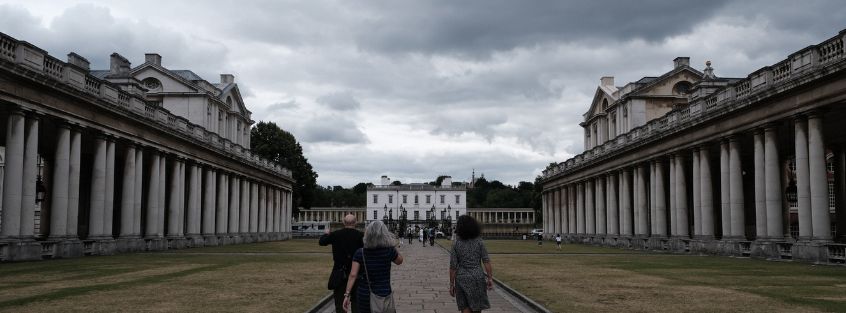To celebrate Black History Month we wanted to shine a spotlight on some of the incredible achievements of historical and contemporary figures who hold a connection to the areas of South East London in which we work. From the first black Briton to vote in an election, to the first black British actress to be nominated for an Oscar, the people in this list are all pioneers in their field and have left a lasting impact
George A Roberts MSM BEM (1890-1970)
Soldier, fire fighter and community leader
George Arthur Roberts was one of the first black men to join the British Army during WWI, fighting in the battles of Loos and the Somme. After the war, he was awarded a Meritorious Service Medal and became heavily involved with the post-war welfare of soldiers, campaigning on behalf of The National Federation of Discharged and Demobilised Sailors and Soldiers and founding a local branch of the British Legion. He was also a prominent campaigner against racism and for the rights of the black community. During the Second World War at the age of 50, he volunteered to support the fire service and was stationed at New Cross Fire Station, where he served through the Blitz. Roberts was awarded the British Empire Medal by the King in 1944. A blue plaque to commemorate his life and achievements is on Warner Road in Camberwell, where he lived until his death.
Sam King MBE (1926-2016)
Former Mayor of Southwark and Founder of the Windrush Foundation
Samuel King came to England from Jamaica in 1944 after responding to a Royal Airforce advertisement for volunteers. Throughout the war, he served as an engineer at the RAF station near Folkestone. After the war, he returned to Jamaica, but chose to come back to live in England on the Empire Windrush. He re-joined the RAF and later worked for the Royal Mail before being elected Mayor of the London Borough of Southwark in 1983 – at the time, he was the only black mayor in London. In 1995, alongside Arthur Torrington, he established the Windrush Foundation, which aims to preserve the memories of the young men and women who were among the first wave of post-war settlers in England.
Marianne Jean-Baptiste (1967-)
Actress and playwright
Born in Peckham, to a mother from Antigua and a father from Saint Lucia, Marianne Jean-Baptiste studied at Royal Academy of Dramatic Art (RADA). She came to international fame after starring as Hortense Cumberbatch in Mike Leigh’s 1966 film, Secrets and Lies, for which she became the first ever black British actress to be nominated for an Academy Award, and only the second ever black Briton to be nominated. More recently she has appeared in acclaimed ITV drama Broadchurch, and is known for her extensive work in theatre, including for the National Theatre and Royal Court.
Una Marson (1905-1965)
Poet, broadcaster and activist
Una Marson was born in Jamaica, where her career as a journalist began. She created the first Jamaican magazine owned and edited by a woman, which was filled with feminism, politics, fashion, housekeeping and poetry. In 1930, she published her first collection of poetry, Tropic Reveries. Marson moved to London in 1932 and lived in Peckham. She joined the League of Coloured Peoples, editing and contributing poems to their journal The Keys. She was a delegate to the twelfth Congress of the International Alliance of Women for Suffrage and Legal Citizenship, a temporary collaborator to the League of Nations, and staff member of the Ethiopian Legation. In 1938, Marson became an influential broadcaster, journalist and poet during the Blitz. She was the first black woman to be employed by the BBC, working as a full-time assistant on the radio programme Calling the West Indies, which evolved into the legendary Caribbean Voices, running until 1958.
Ignatius Sancho (1729-1780)
Writer, composer and abolitionist
Ignatius Sancho was born on a slave ship on its way to the West Indies. He was orphaned before the age of two and brought to England to a household in Greenwich. Impressed by his intellect, John 2nd Duke of Montagu encouraged him to read and lent him books from his personal library in Blackheath. He later worked as a butler for Montagu’s widow, where he flourished by immersing himself in music, poetry, reading and writing. During the 1760s he married Ann Osborne and they had seven children. Following the birth of their third child, Sancho became a valet for George Montagu, son-in-law of his earlier patron, and sat for a portrait by Thomas Gainsborough. By the 1760s he was already accomplished, having published a couple of plays and musical compositions. He became the first black Briton to vote in an election and have an obituary published in the papers.
Bernadine Evaristo OBE (1959-)
Novelist, poet and activist
British novelist, Bernadine Evaristo, was born in Eltham and attended Eltham Hill Grammar School for Girls. In 2019, she became the first mixed-race woman and second mixed-race British person to win the Booker Prize for her novel Girl, Woman, Other. She is also the first mixed-race person to be appointed President of the Royal Society of Literature since its inception in 1820. Alongside her literary achievements, Evaristo is an advocate of the inclusion of writers of colour. She founded Britain’s first black women’s theatre company and organised the first major black theatre conference, as well as the first major conference on Black British writing. She was appointed an OBE in the 2020 Queen’s Birthday Honours for services to literature.
John Boyega (1992-)
Actor and producer
Internationally acclaimed actor, John Boyega, was born in Camberwell and grew up on the Sceaux Gardens estate in SE5. While performing in a school play at the Oliver Goldsmith Primary School, he was noticed by Teresa Early, Artistic Director of Theatre Peckham. He attended the theatre outside of school from the ages of nine to fourteen and, in 2020, a mural of him was unveiled in the foyer of its building. One of his first major actor roles was in Attack the Block in 2011, but he was catapulted to international fame when he was cast as Finn in the Star Wars films. Boyega is also an activist and took part in the Black Lives Matter demonstration in London that followed the murder of George Floyd in the US.
Olive Morris (1952-1979)
Community leader and activist
Olive Morris was born in Jamaica and moved to South London with her family aged nine. She joined the British Black Panthers at the age of 17 and, following the demise of the group, co-founded the Brixton Black Women’s Group to provide a space for Asian and black women to discuss political and cultural matters. While studying at Victoria University of Manchester, Morris continued her activism, helping to establish a supplementary school after campaigning with local black parents to provide a better education for their children. On her return to Brixton, she set up the Organisation of Women of African and Asian Descent, which was one of the first organisations for black women in the United Kingdom. Morris died at the age of just 27. Her life and work have been widely commemorated, including by Lambeth Council, who named a building after her in 1986.
Keep up to date with all our latest news here and follow us on social media: Twitter, Facebook, LinkedIn and Instagram.


